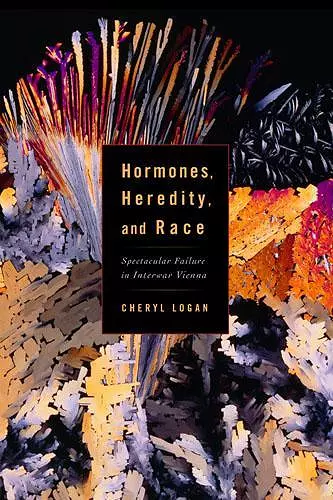Hormones, Heredity, and Race
Spectacular Failure in Interwar Vienna
Format:Hardback
Publisher:Rutgers University Press
Published:20th Mar '13
Currently unavailable, and unfortunately no date known when it will be back

Early in the twentieth century, arguments about “nature” and “nurture” pitted a rigid genetic determinism against the idea that genes were flexible and open to environmental change. This book tells the story of three Viennese biologists—Paul Kammerer, Julius Tandler, and Eugen Steinach—who sought to show how the environment could shape heredity through the impact of hormones. It also explores the dynamic of failure through both scientific and social lenses. During World War I, the three men were well respected scientists; by 1934, one was dead by his own hand, another was in exile, and the third was subject to ridicule.
Paul Kammerer had spent years gathering zoological evidence on whether environmental change could alter heredity, using his research as the scientific foundation for a new kind of eugenics—one that challenged the racism growing in mainstream eugenics. By 1918, he drew on the pioneering research of two colleagues who studied how secretions shaped sexual attributes to argue that hormones could alter genes. After 1920, Julius Tandler employed a similar concept to restore the health and well-being of Vienna's war-weary citizens. Both men rejected the rigidly acting genes of the new genetics and instead crafted a biology of flexible heredity to justify eugenic reforms that respected human rights. But the interplay of science and personality with the social and political rise of fascism and with antisemitism undermined their ideas, leading to their spectacular failure.
"Cheryl Logan’s wonderfully composed and very readable book is recommended for everyone interested in the political history of science, the genealogy of epigenetics, and the early work in human enhancement—one of the main objectives behind the experiments at the Vivarium."
* Isis *
"This terrifically inventive and important story is one of the first to examine physiological attempts to understand heredity in the first half of the twentieth century, offering a beautiful rendering of the intersection of science and politics."
-- Vassiliki Betty Smocovitis * University of Florida *
"An insightful and sympathetic story of three high-minded, but ill-fated researchers at the intersection of science, medicine, and social reform, in the cultural laboratory that was post-imperial Vienna." -- Sander Gliboff * Indiana University *
ISBN: 9780813559698
Dimensions: 229mm x 152mm x 20mm
Weight: unknown
256 pages